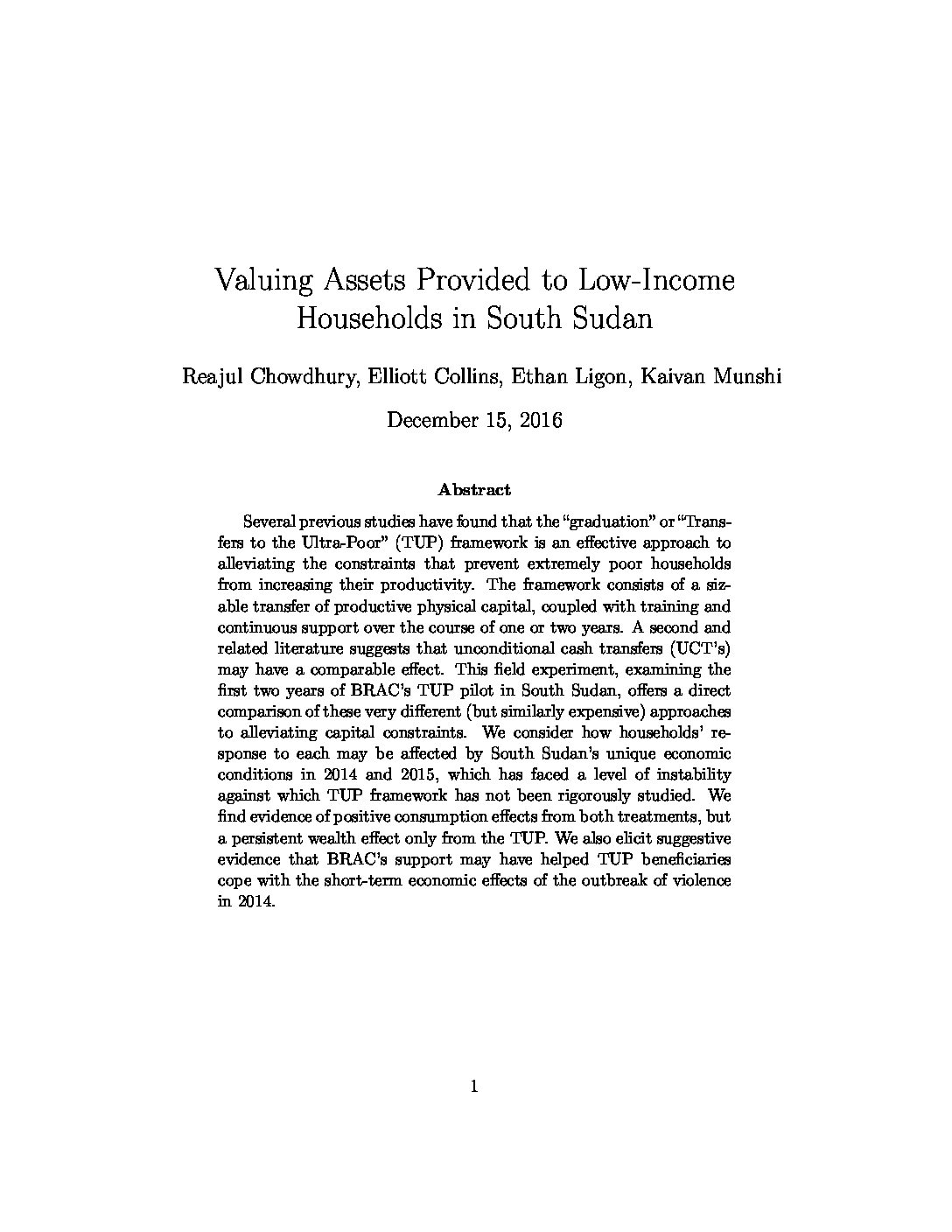Valuing Assets Provided to Low-Income Households in South Sudan
By BRAC UPGI • December 15, 2016 • 1 minute read

By Reajul Chowdhury, Elliott Collins, Ethan Ligon, Kaivan Munshi (2016)
—
Abstract
Several previous studies have found that the “graduation” or “Transfers to the Ultra-Poor” (TUP) framework is an effective approach to alleviating the constraints that prevent extremely poor households from increasing their productivity. The framework consists of a sizable transfer of productive physical capital, coupled with training and continuous support over the course of one or two years. A second and related literature suggests that unconditional cash transfers (UCT’s) may have a comparable effect. This field experiment, examining the first two years of BRAC’s TUP pilot in South Sudan, offers a direct comparison of these very different (but similarly expensive) approaches to alleviating capital constraints. We consider how households’ response to each may be affected by South Sudan’s unique economic conditions in 2014 and 2015, which has faced a level of instability against which TUP framework has not been rigorously studied. We find evidence of positive consumption effects from both treatments, but a persistent wealth effect only from the TUP. We also elicit suggestive evidence that BRAC’s support may have helped TUP beneficiaries cope with the short-term economic effects of the outbreak of violence in 2014.

